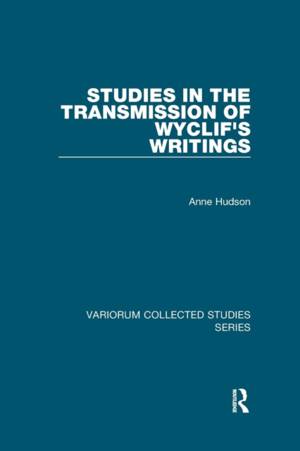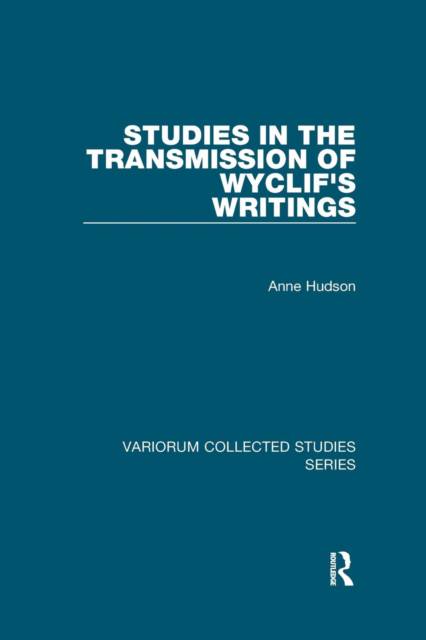
- Afhalen na 1 uur in een winkel met voorraad
- Gratis thuislevering in België vanaf € 30
- Ruim aanbod met 7 miljoen producten
- Afhalen na 1 uur in een winkel met voorraad
- Gratis thuislevering in België vanaf € 30
- Ruim aanbod met 7 miljoen producten
Zoeken
Omschrijving
Wyclif's ideas caused a major upheaval both in the country of his birth and in the Bohemian area of central Europe; that upheaval affected theological, ecclesiastical and political developments from the late 14th to the early 16th centuries. Some of those ideas were transmitted orally through Wyclif's university teaching in Oxford, and in his preaching in London and Lutterworth, but the main medium through which his message was disseminated was the written word, using the universal western language of Latin. The papers in this collection look at aspects of that dissemination, from the organization and revision of Wyclif's works to form a summa of his ideas, the techniques devised to identify and make accessible his multifarious writings, the attempts of the orthodox clerical establishment to destroy them, through to the fortunes of his texts in the Reformation period; manuscripts written in England and those copied abroad, mostly in Bohemia, are considered. Although most of the papers have been published previously, a new edition of the important Hussite catalogue of Wyclif's writings is provided, and three lengthy sections contribute new material and additions and corrections to previous listings of Wyclif manuscripts.
Specificaties
Betrokkenen
- Auteur(s):
- Uitgeverij:
Inhoud
- Aantal bladzijden:
- 392
- Taal:
- Engels
- Reeks:
Eigenschappen
- Productcode (EAN):
- 9781138375260
- Verschijningsdatum:
- 19/12/2018
- Uitvoering:
- Paperback
- Formaat:
- Trade paperback (VS)
- Afmetingen:
- 156 mm x 234 mm
- Gewicht:
- 548 g

Alleen bij Standaard Boekhandel
+ 149 punten op je klantenkaart van Standaard Boekhandel
Beoordelingen
We publiceren alleen reviews die voldoen aan de voorwaarden voor reviews. Bekijk onze voorwaarden voor reviews.








